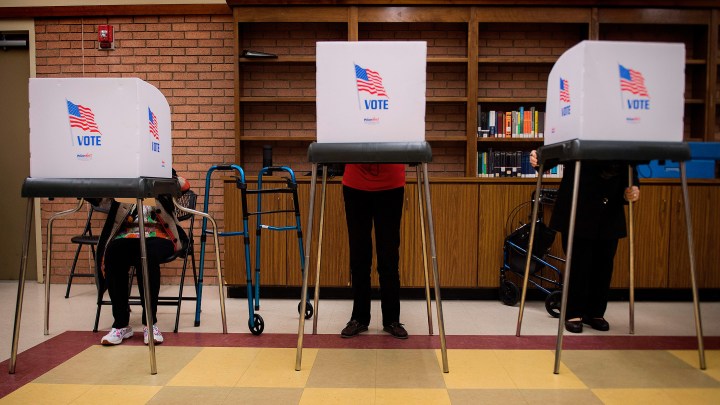
Voting rights advocates equate fees to modern-day poll tax
Voting rights advocates equate fees to modern-day poll tax

In most states, being convicted of a felony can result in the loss of voting rights for some period of time. In Kentucky and Iowa, felony disenfranchisement is permanent unless pardoned. Eight states require formerly convicted people to pay all outstanding fines and fees that often come with being incarcerated — bail, court costs, prison, probation and interest.
Danielle Lang, co-director of voting rights and redistricting at Campaign Legal Center, said that paying your debt to society should not hinge on finances.
Lang said that these fines and fees, which can easily get up to tens of thousands of dollars, are a modern-day poll tax.
“We got away from poll taxes and hinging the right to vote on how much money you have in the 1960s. That used to be an important tool in the Jim Crow toolbox for disenfranchising people with past conviction.”
According to a study conducted by the Brookings Institution, nearly half of formerly convicted people have no reported income in the first several years after leaving prison, which can lead to higher rates of recidivism.
Lang said that while imposing exorbitant fines and fees is troubling, the bigger issue is the wholesale ban on the right to vote until all monies are paid.
“States cannot punish people simply because they cannot pay outstanding fines and fees. You can levy them. You can attempt to collect them by the ordinary means, but the state can’t use its extraordinary power to strip people of their fundamental rights in order to try to squeeze out every last dime.”
She said there’s political will to overturn laws prohibiting the right to vote after a felony conviction.
“When the American people are polled on this issue on a bipartisan basis, Americans believe that people with past convictions deserve second chances, and they should have the right to vote when they reenter our society. They pay taxes, they’re parts of our community. They send their children to our schools and they deserve to have the same voice as the rest of us.”
Last year, Florida passed an amendment that restores the right to vote to people after their completion of parole and probation. Sixty-five percent of voters voted in favor of the amendment.
In only two states, Maine and Vermont, do felons retain voting rights, even while incarcerated.
To see a detailed table on the process for restoration of rights, visit the National Conference of State Legislatures.
There’s a lot happening in the world. Through it all, Marketplace is here for you.
You rely on Marketplace to break down the world’s events and tell you how it affects you in a fact-based, approachable way. We rely on your financial support to keep making that possible.
Your donation today powers the independent journalism that you rely on. For just $5/month, you can help sustain Marketplace so we can keep reporting on the things that matter to you.


















